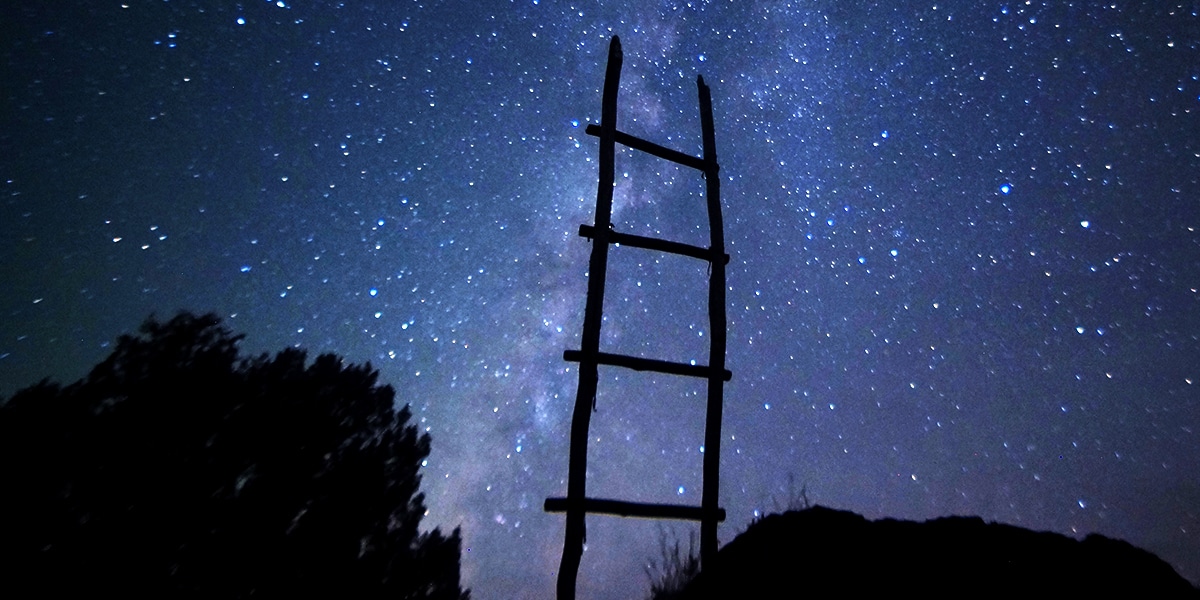As I began climbing the mountain at the Franciscan sanctuary of La Verna in central Italy, the great Franciscan theologian Bonaventure’s words came to mind. In climbing that same mountain nearly eight centuries before, Bonaventure once commented that he was “panting after peace,” a phrase that, I believe, contains within it a powerful architecture for prayer.
There is a beautiful depth to the word panting. After a strenuous run or hike, I might find myself panting heavily, but my body continues breathing nonetheless, almost reaching into the deepest parts of myself (and the world around me) for air. In prayer, we let ourselves come to God imperfectly, pantingly, yet in this honesty about our condition, we are becoming even more dependent upon our source—the very spirit that dwells within each of us. In this sense, we can think of prayer as the human heart gasping for the inner life-source of spirit, a rich inner movement into vulnerability.
One of the many things I love about the Franciscan tradition is its unashamed acknowledgment of anxiety and lack as fundamental realities of the human condition. Shallow religion often fails to guide us inward and instead offers false promises of wholeness and completeness that mask our inner division and conflict. Our post-religious age is full of secular religions that often make similar promises, whether it be a political ideology, exercise program, or meditation regimen. The early Franciscans, like the Gospel writers, felt no need to hide the frailty and messiness of the human condition.
Theology of a Poet
Bonaventure and Francis each came to La Verna with aching hearts and heavy minds. Anxious over the future of the Franciscan Order as its rapid growth continued to create organizational headaches, Bonaventure carried the weight and fear of institutional collapse when he made a retreat to La Verna and commented that he was “panting after peace.” Francis, in his final visit to La Verna, arrived in a similar inner state. As the order organically grew beyond Francis’ control, he became anxious over its future as he neared the end of his life. It was during this time at La Verna that Francis is said to have received the stigmata, which he hid from his brothers until he died. Bonaventure, too, emerged from La Verna with a “thorn in his flesh,” accepting the future of the order as his own responsibility.
Franciscan spirituality has a visceral and experiential dimension that the study of theology sometimes lacks. For Francis and Bonaventure, theology was not meant to remain in the head as ideas, where I often like to keep them. For them, the heart and senses became conduits for experiencing the divine beyond the mind.
My dear friend and mentor, Father Dan Riley, OFM, recently shared with me a story about Francis I had never heard. Francis, perhaps feeling lonely or questioning his decision to remain celibate, slipped into doubting the lifestyle and path he had chosen. So, Francis decided to go outside into the wintry cold and carve into the snow sculptures of a spouse and two children. While doing this, he realized his life had unfolded as it was supposed to. He then apologized to the snow people for being unable to take care of them.
On the surface, this story may sound absurd. But Francis was all heart. Often that meant basking in the beautiful, but in being so in touch with his heart, he found anxiety and lack sometimes swirling around there as well. Francis leaned into these complexities. He brought them to God in prayer. He made snowmen.
So often in my panting I can slip into self-condemnation. How are you not past this already? I might ask myself. Why are you like this? Why can’t you let this go? Francis does not beat himself up in this story. He does not tell himself he should be past these thoughts of wanting a family or shame himself for this very human moment of wanting something different with his life. He engages the vulnerability of the moment and gets his hands dirty, or, in this case, snowy. In panting there is a prayerful movement through the complicated contours of the heart.
I did not have a mystical experience as Francis and Bonaventure did when I visited La Verna, but it was fitting that when we reached the top of the mountain, almost 5,000 feet above sea level, we could not even see the splendor of the sight below. We had risen above the thick blanket of fog. All we could do was watch the fog slowly move beneath us.
The Breath of God
God, I am fearful of the tensions within myself.
I prefer to distract and escape rather than bring my anxiety and lack to the surface.
I want my heart to be fully alive in you but am afraid to let go of control.
I suppose I am afraid to move.
Will you enter the emptiness as I pant for air?
Will you fill me with your breath?








